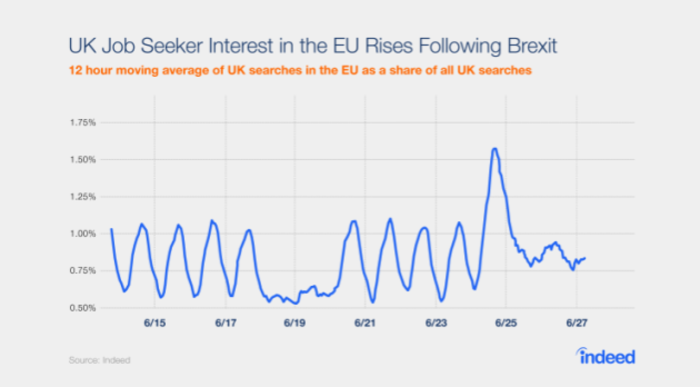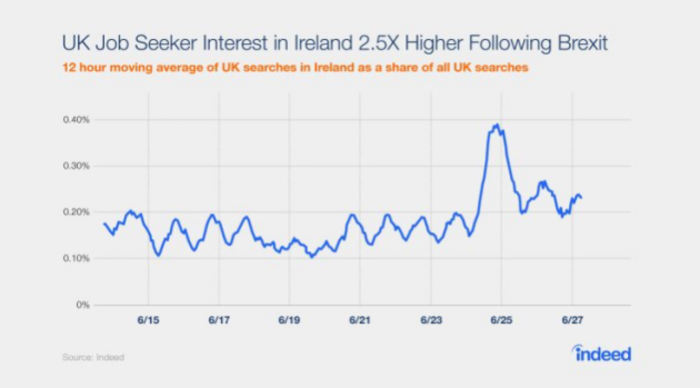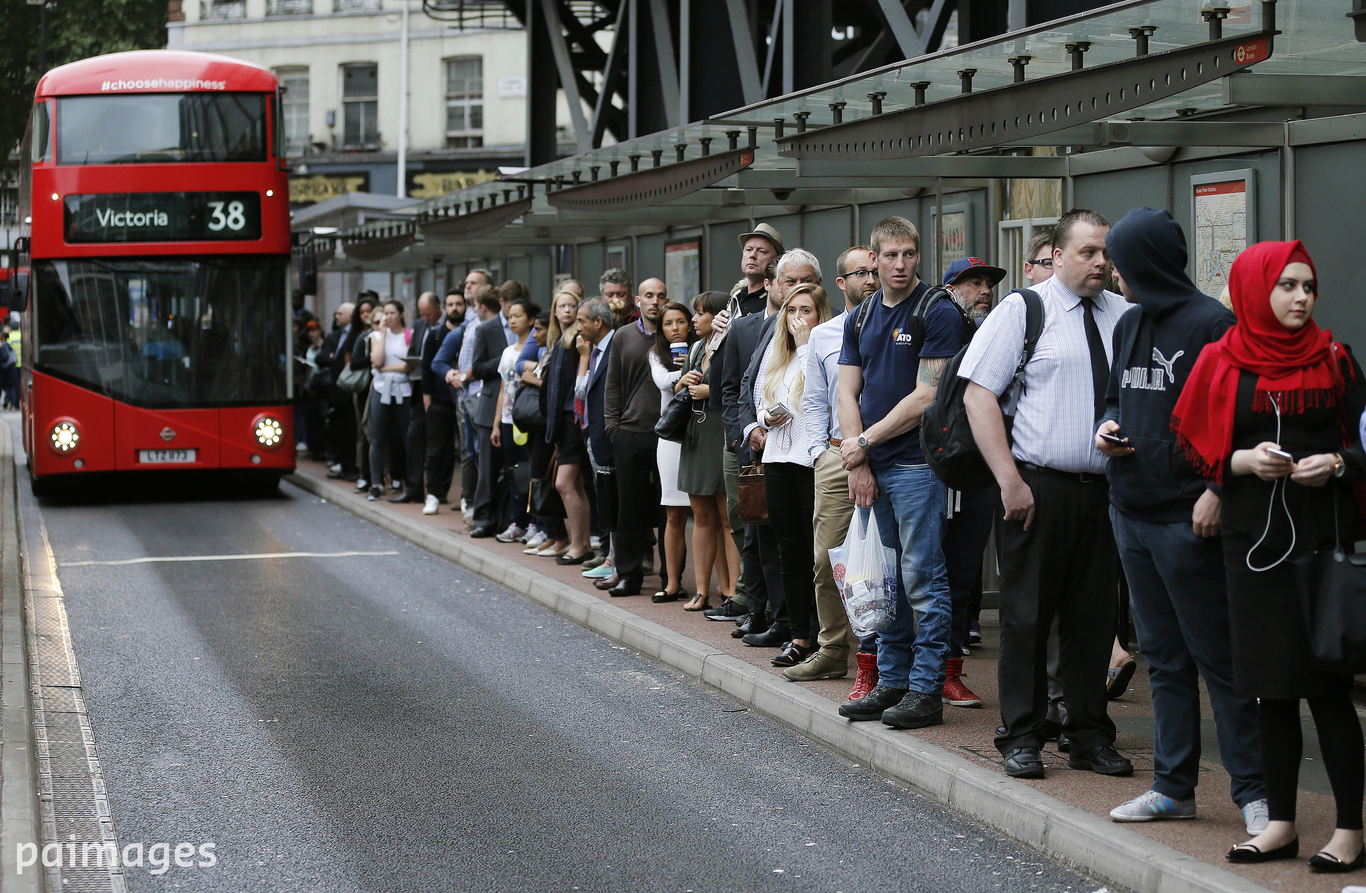There has been a huge surge in the number of UK residents looking for jobs in Ireland
More than twice as many job searches from the UK to Ireland came in after the Brexit vote.
THERE WAS A jump in the number of UK residents searching for jobs in Ireland online immediately after the Brexit vote last week.
According to jobs portal Indeed.com, after the UK voted to leave the European Union last Friday the website saw a huge spike in jobseekers looking for opportunities outside of the country.
In the 48 hours following the announcement of the results, the share of UK-based jobseekers looking for opportunities in European countries was double the average in the days prior to the vote.
Top searches included roles in marketing, human resources, hospitality and the finance sectors.
Indeed economic research analyst Mariano Mamertino said that the spike could be due to the fact that there are millions of citizens of other EU countries currently based in the UK, “many of whom had expressed concern about their future in the run-up to the referendum”.
“This surge in EU-oriented job search could be a reflection of that anxiety,” he said.
“Facing an uncertain future in the UK, it is likely that many EU citizens might be inclined to look at opportunities elsewhere in the EU, even if they are not ready to make such a move yet.”

Spike in Irish interest
The company also found that Ireland was a major beneficiary of the post-Brexit surge.
At their peak, job searches from the UK to Ireland on 24 June, the day the result of the referendum was announced, were 2.5 times higher than the average in the days before the vote.
Indeed said that the main areas in which people were looking for work included marketing, human resources, engineering, transportation and retail.
“In fact, UK interest in Ireland was strong even before the referendum, as the Irish government reported a surge in applications for Irish passports from UK citizens with Irish ancestry,” Mamertino said.
Last Friday when the result of the referendum was announced the Department of Foreign Affairs said that there was a surge in the number of queries about Irish passports.

Rest of the EU
Indeed also reported a rise in traffic from EU jobseekers looking for opportunities in Ireland.
After the result was known, EU jobseeker interest in Ireland was 2.2 times higher than the average in the days before the results of the referendum were announced.
Mamertino noted that with the UK out of the EU, “Ireland becomes the only country with access to the common market where English is spoken as a first language by the majority of its citizens”.
He added: “Perhaps in the future we will see international banks and businesses moving from London to Dublin.”
The website said that this matched results when the Greek government held a referendum on the terms of its bailout agreement in 2015.
At that time the jobs portal reported the share of Greek job seekers looking for opportunity outside of their home country doubled in the days following the announcement of a referendum on the EU’s proposed bailout package.






